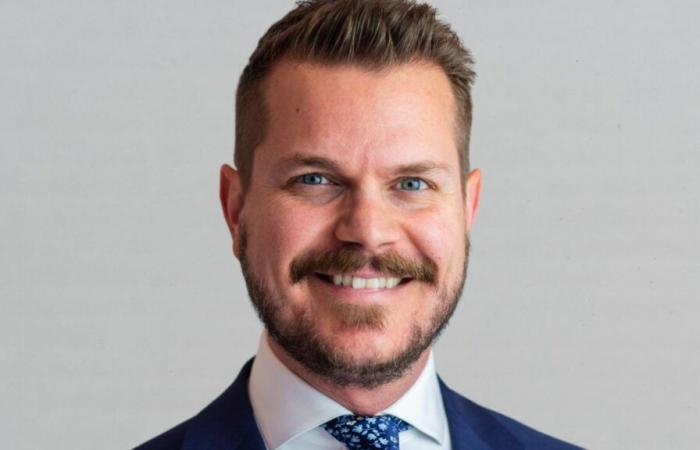A year ago you were invited to the EPU to present the contribution of an order of hearing aid professionals in daily practice. Since then, the issue has been pushed by the SDA and gained some support but has made little progress. From your point of view, to what extent could an order respond to the problems in France?
If there had been a well-established order before the establishment of 100% Health, many of the abuses that impact the sector today could undoubtedly have been avoided. The ideal would therefore have been for it to precede the reform rather than to arrive after the fact, but it is always possible to put a bandage on an open wound… Obviously, it is a challenge because the storm is already there.
What would be the advantages of such a body in France? It would first of all be to restore the forces present to their initial mandates, that is to say, to allow the union to regain its role as a union and to concentrate its efforts on its prerogatives. The Union is there above all to defend the social and economic rights and interests of hearing care professionals – even if, of course, this does not prevent it from taking eminently pro-public positions. However, we are entitled to wonder whether, faced with a dilemma, he will favor the interests of professionals or those of the public. If they converge, great, but that’s not always the case. In the same way, I think that the vocation of the National Hearing Aid College is first and foremost scientific, educational, ethical and also political to a certain extent. This ecosystem also includes representatives of the brands, who are more keen to liberalize the market.
An order would add a voice to the table clearly dedicated to protecting the public. Today, everyone does a small part of it but ultimately many files fall between two chairs. A professional order would serve as a one-stop shop and ensure the admissibility of complaints. It is a body that reassures patients and is responsible for monitoring the professionals who take care of them. All stakeholders in the hearing industry in France must therefore work to find the right balance between stricter control of the exercise and greater liberalization.
If there had been a well-established order before the establishment of 100% Health, many of the abuses that impact the sector today could undoubtedly have been avoided.
Is an order compatible with the freedom to communicate?
In Quebec, it is possible to communicate, but within a very restricted framework. What is provided for in the code of ethics is that “ the audiologist must, in his advertising, avoid all methods and attitudes likely to give his profession a lucrative and commercial character. “. In other words, we are not traders, but health professionals and the emphasis must be on professional service and not on the product. In 2020, by refusing to hear a plaintiff, the Supreme Court of Canada confirmed that professional orders are justified in limiting the advertising activities of their members and that such a restriction on their right to freedom of expression is justified for ensure the maintenance of a high standard of professionalism. Thus, in our Canadian scale of values, protection of the public supersedes freedom of expression in the world of advertising, because the risk is sufficiently significant.
The hearing care professional must not make or allow to be made, by any means whatsoever, advertising relating to a brand, model or mentioning a price, discount, discount or free hearing aid » [1]. Nor can he enter into an agreement in any way whatsoever with any person to obtain customers and, in particular, pay, remunerate or otherwise reward agents or direct sellers (…) ».[2]
With these rules, the playing field is the same for everyone, which guarantees a certain homogeneity. No matter where you practice, whether you are independent, whether you work within a large chain of clinics, all hearing care professionals have the same obligations. Ultimately it’s just a paradigm shift. You have to be more creative to stand out within a stricter framework. But that doesn’t mean the market will collapse.
Precisely, one of the arguments formulated against the establishment of an order in France is the fear that it will become the tool of anti-competitive interests…
The administrators of the Order in France could decide to be more permissive on advertising than in Quebec. However, let us remember that the Order is not there to regulate the market, it is there to supervise each hearing care professional individually. If the exercise is well supervised, that does not mean that there is no competition, but that it takes a less marketing, less flashy form. We are not in a consumer logic. Obviously, this is a bold choice in 2024, at a time when we are used to shopping for everything, comparing prices from a cell phone. We believe that it is still relevant to do this for the hearing aid, because it is a health product that cannot be dissociated from the professional service that accompanies it.
Does the order represent a solution to guarantee the skills of professionals?
In Quebec, to become a member of the order, if you have not been trained in one of the institutions recognized in our regulations, you must go through a diploma and training equivalence process. Each file is thus analyzed exhaustively by a dedicated committee then submitted to the OAQ board of directors with recommendations for acceptance or compensatory measures for additional training. This is an important first filter.
The other lever is professional inspection. The OAQ inspects 20% of hearing care professionals each year; the tour of the profession is completed in five years. A first phase is done via an online questionnaire. On this occasion, a certain number of risk factors may appear such as the place of obtaining the diploma. Depending on the results of the analysis, the hearing care professionals inspected may be summoned to answer questions by videoconference. They are asked to submit five complete patient files upstream, from the assessment to the fitting, to the post-prosthetic assessment. At the end of the videoconference, the hearing care professional may have to apply some small corrections – the inspection also has an educational value and a mission to improve practices. The inspectors submit an anonymized report to the committee; the identity of the hearing care professional is hidden at the time of analysis to avoid bias.
If necessary, a third step is to visit the center. The inspectors check on this occasion that the rules and standards which govern our profession are respected by the hearing care professional. A report is then given to the professional inspection committee and, depending on the result, action can be taken. Most of the time it goes well. Otherwise, the inspection process may result in training obligations or even a limitation of the right to practice.
Do you consider these measures effective? In other words, are there few deviations?
In the vast majority of cases, yes, but there is one last tool, which is the most incisive. This is the “syndic”, responsible for investigating complaints submitted by the public regarding hearing care professionals who may have contravened their professional obligations and duties. “ The Board of Directors must take measures aimed at preserving at all times the independence of the office of the trustee in the exercise of its functions. » [3]. There is a controlled seal, provided for in the law, between the trustee and the Order.
The role of the trustee is therefore to receive reports from the public, to conduct investigations in order to verify whether the alleged facts are founded and to decide whether a complaint must be brought to the disciplinary council. He can also open an investigation based on information brought to his attention and which justifies it.
But it is a lever that can seem prohibitive to the public. This is why the various players in the Quebec professional system are currently considering modernizing the complaint process. It is still an excellent tool to ensure their protection. It can lead audiologists who contravene the law to the professional tribunal and to financial sanctions or even temporary or complete cancellations.
How are the members of the Order appointed?
Our members are elected by all hearing care professionals in two electoral regions. The Order is also accountable to the Office of Professions, which is a government agency. And we are monitored very closely. Hearing care professionals tend to think of the Order as the supreme entity. In reality, for a president of the Order, the Office of Professions is a bit like the school principal and, believe me, you don’t want to be summoned to his office for the wrong reasons!
As the system is based solely on public trust, the government ensures that the Orders, to which it has entrusted the responsibility of protecting the latter, remain on the right path. An order can be placed under supervision, either because it is dysfunctional, for ethical reasons, or for economic reasons.
Are the orders a way for the government to spend less on protecting the general public?
Yes, but above all it is a way of protecting people at risk. The orders are created in areas where the public is not competent and informed enough to protect themselves. It is a very important organ in our ecosystem because hearing aids constitute a perfect breeding ground for fraudsters: expensive products, often reimbursed by the government and intended for people who are sometimes vulnerable. It’s also the perfect recipe for a professional order. Where fraudsters have an interest, a professional order is useful.
The OAQ was created 50 years ago… Are the professional rules still adapted to current practices, technologies and needs?
Basically, what was true 50 years ago and motivated the creation of the order, is still true today. But, we do not want to be archaic in our vision of innovation. The order must ensure that it is always open to a diversity of solutions and opinions and adapt its rules to the reality of 2024 to maintain the means to achieve its ambitions. We are in favor of everything that moves towards greater awareness of hearing health. But technology evolves faster than our ability to modify our rules and professional orders have no regulatory agility. Subjects like artificial intelligence, which are a professional, technical and legal reality, must find their place in laws and regulations.






